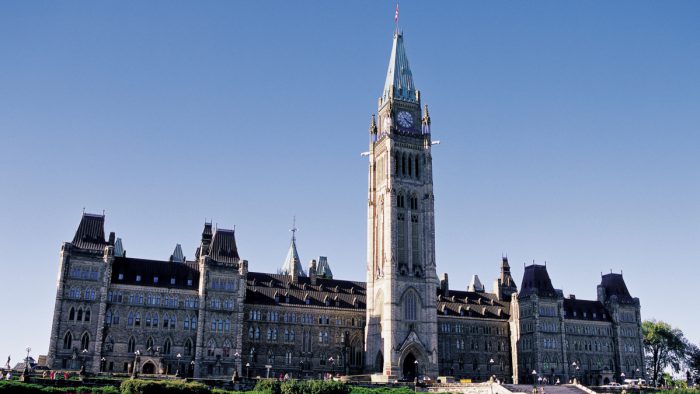The boom, not the slump, is the right time for austerity at the Treasury.
—John Maynard Keynes (1937)
- Canada’s Liberal government ripped a page out of Keynes’ playbook Wednesday, promising to use “whatever fiscal firepower is needed” to rebuild the economy and recover “one million jobs.”
- That includes multi-billion-dollar-price-tag initiatives like extending the Canada Emergency Wage Subsidy through summer 2021, making “significant” investments in a new childcare system, increasing funding for the Canada Emergency Business Account, a new national pharma-care program, etc., etc.
- To make these programs a reality, Trudeau needs support from at least one opposition party—likely the NDP. If he gets that support, our government’s current projected deficit of $380+ billion for 2020-2021 is out the window.
- Future fiscal repercussions aside, all this spending should fuel a quicker economic recovery. That implies a faster rebound in inflation, and hence a faster rebound in mortgage rates. Albeit, any talk of higher rates is still a 2022 story at the earliest, say the most optimistic economists (for whatever that’s worth).
- For its part, the bond market—which is the ultimate predictor of future inflation—shrugged off the prospect of soaring deficits. The 5-year yield, which drives fixed-mortgage pricing, was unchanged at 0.36%.
Revamping the First-Time Home Buyer Incentive
- “For the middle class, the Government will also move forward with enhancements to the First-Time Home Buyer Incentive (FTHBI), including in Canada’s largest cities, so families can afford to buy their first home,” the government said in its Throne Speech.
- A FTHBI-redo was first announced one year ago. Initially, it was expected to go live last fall but was later shelved.
- Assuming no changes to that September 2019 revision proposal, the new FTHBI would allow users in Toronto, Vancouver or Victoria to:
- Earn more and still qualify for the program
- $150,000 maximum income vs. $120,000
- Boost their buying power
- Our preliminary calculations suggest a qualifying first-time buyer with a household income of $90,000, 5% down (plus the 5% “incentive”), no other debt and CMHC default insurance would qualify for a 7.8% greater purchase price (or roughly $408,500 vs. $379,000 under the current program).
- One interesting side note: On July 1, CMHC lowered the maximum allowable gross debt service (GDS) ratios for new CMHC-insured borrowers.
- That counteracts the increased “leverage factor” that was supposed to be one of the benefits of FTHBI 2.0, which the Liberals say is vital since housing is “a key driver of the economy” that “creates jobs.”
- So, you seemingly have CMHC policy working against the government’s objectives…unless, of course, there’s some secret agenda to water down the new FTHBI due to increased housing risk.
- Shop for a higher-priced home
- According to its announcement last year, the maximum allowable home value would jump from $505,000 to $789,000, assuming the minimum down payment.
- To hit that new number, borrowers would seemingly have to use one of the private default insurers (Genworth or Canada Guaranty, which allow higher GDS ratios up to 39%) instead of using CMHC, which now tops out at 35%.
- Earn more and still qualify for the program
- The Liberal government didn’t specify when this FTHBI version 2.0 might take effect. No doubt, some will criticize the timing of this demand-fuelling incentive, given there’s not enough housing as it is. We’ve reached out to the government for comment on the launch date and will report back once we hear more.
HSBC Sets New Rate Records
- Rate aggressor HSBC Canada has chopped the following…
- Special fixed rates:
- 2yr: 1.94% to 1.84%
- A record low for a nationally advertised 2-year fixed
- 5yr (high ratio): 1.76% to 1.64%
- That’s easily the lowest nationally advertised 5-year fixed from any lender in Canada…ever.
- 5yr (transfers): 1.84% (new rate)
- 5yr (purchases): 1.96% to 1.89%
- 2yr: 1.94% to 1.84%
- Special variable rates:
- 5yr: 1.89% to 1.79% (prime – 0.66%)
- The biggest lender-advertised conventional variable-rate discount (from prime rate) since March
- 5yr (high ratio): 1.69% to 1.54% (prime – 0.91%)
- That’s 16 bps below the next closest lender.
- 5yr: 1.89% to 1.79% (prime – 0.66%)
- Special fixed rates:

 log in
log in

8 Comments
Hi spy,
I am getting 1.60 (p-.85) 5 year variable for an uninsured new purchase from a big five bank. Is this a good deal in your opinion or should I shop around still?
Thanks
Daniel
Hey Daniel, P-85 is outstanding for a big bank uninsured 5yr variable. Much better than average discounted rates. If that’s the optimal term for you, well done.
I have to laugh at the repeated attempts to make the FTHBI relevant. As they say, you can put lipstick on a pig…
@Skeptic: The oddest part is that they’ve repeatedly taken with one hand (macro-prudential tightening) and now want to giveth with the other, as prices surge amid record-low inventory.
We do hundreds of mortgages a year and have never done one FTHBI deal. No one asks for it and it’s too confusing to sell.
These liberal squanderers better be willing to buy all of Canada‘s debt cuz no one else is going to want it. Not at these rates.
Trudeau is out of control with this vote buying. Counting the days until Canada loses another AAA rating.
Vic, I fear it could happen by next year if the Liberal/NDP spending partnership comes to pass.